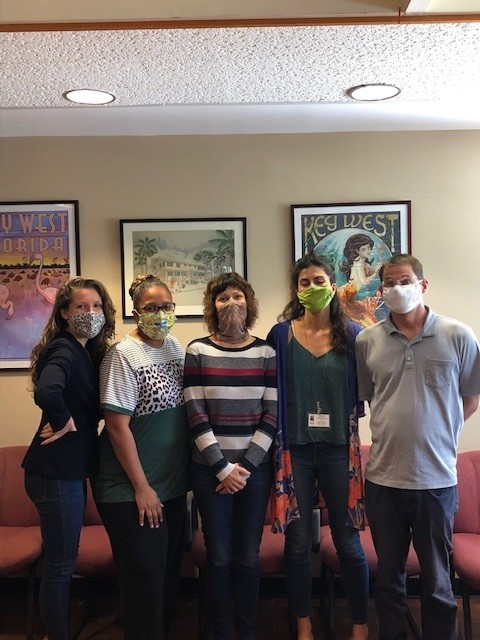By Carol Dochow, LMHC, Program Coordinator
As a society, we often find ourselves judging individuals who have violated the law and believe they deserve incarceration as a punishment. What we frequently don’t realize is that many offenders are incarcerated due to behaviors related to mental health and/or substance use disorders. Although incarceration can be a motivating factor to inspire change, most individuals are released back into the same environment with the same people and old problems from their past. How do they change even with the best of intentions?
The Guidance/Care Center’s program, The Other Side of the Fence (OSF), provides intensive outpatient treatment to adult male offenders at risk for HIV or who have HIV due to high-risk behaviors associated with substance misuse and/or mental illness. OSF’s target population includes racial and ethnic minorities, the LGBTQIA+ population, and previously incarcerated individuals. Some clients are court-ordered to the program because they want early release from jail or are seeking a lighter sentence. However, many clients volunteer for the program hoping to get prevention assistance from returning to old behaviors that lead to reincarceration.

One such client, Robert, was living in a tent on the side of the highway and drinking alcohol to cope with stress, mental health symptoms, and past trauma. He slowly began to trust the staff and started receiving therapy and case management for multiple issues. Robert was at high risk for recidivism and contracting HIV. OSF staff linked him to a Veterans housing program and a Social Security disability attorney. By the time that Robert completed the program, he was living in permanent Veteran’s housing, receiving SSDI benefits, attending 12 step meetings, adhering to his psychiatric medication regimen, and addressing his past trauma. Robert expresses his gratitude to OSF by saying, “I didn’t know I could live a different way and I wouldn’t be here without the program.”
“I didn’t know I could live a different way and I wouldn’t be here without the program.”
-Robert, A WestCare Client
OSF staff includes a program coordinator, licensed clinical social worker, two care coordinators, and a research assistant to provide individual and group therapy, CLEAR counseling, HIV testing, psychiatric care, and trauma resolution. In addition, case management services are provided to assist clients with acquiring stable housing, employment, and food stamps as well as linkages to recovery/peer support, primary health care, and potential SSI benefits.





